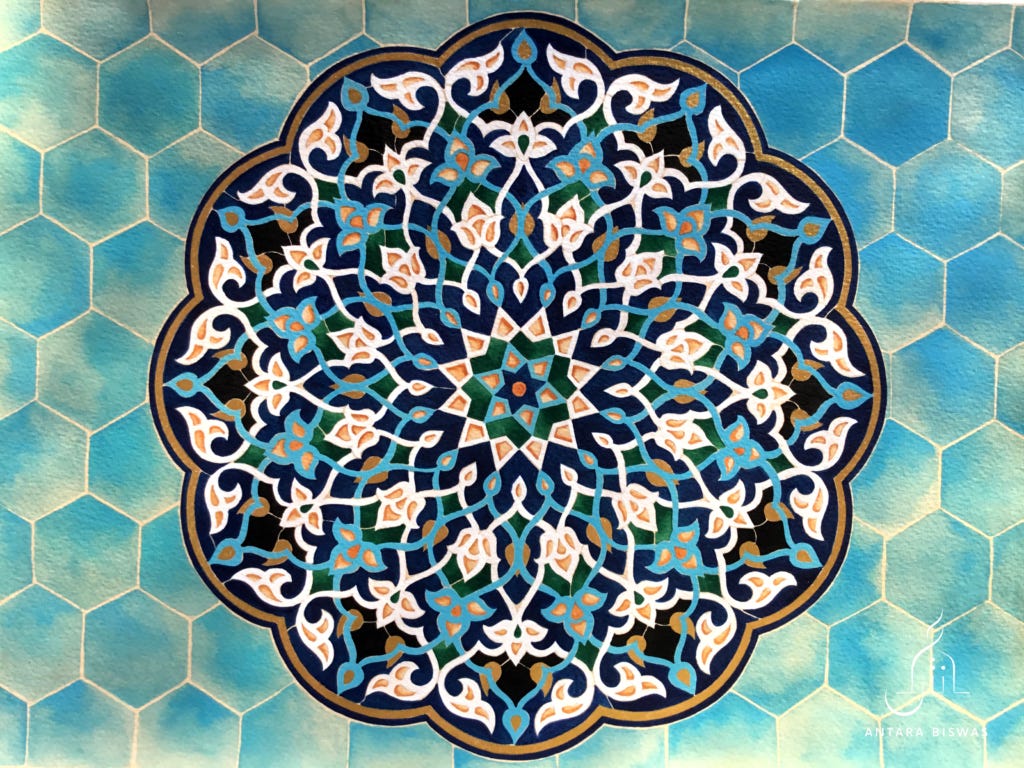Is consciousness the secret architecture of the universe?
Join us for a Candlelight Chat with bestselling author Annaka Harris, on the most dazzling mystery of all (plus, here's an excerpt from Annaka's new series)

Please mark your calendars! On Sunday May 4, at 1 pm ET, we’re very lucky to host Annaka Harris, the NY Times bestselling author and host of LIGHTS ON, a dazzling new audio series on the mysteries of consciousness.
We’ll be talking about consciousness generally — what is it? Is consciousness a fundamental building block of the universe, like gravity? Can AI ever replicate the subjective experience of being conscious? And how does understanding consciousness change our own lives?
Annaka has a clear and bell-like voice, that matches her ability to tackle the most confusing and mysterious topics with grace and clarity. I think you’ll love this one.
As always, we’ll begin by lighting our candles; then I’ll interview Annaka, and you’ll have a chance to interact with her directly, either in writing or live — your choice. We’ll send out log-in instructions, the day before the event.
In the meantime, here’s an excerpt (in both print and audio form), from Annaka’s magnificent new series.
(If you’d like to join us for the Candlelight Chat, but are not yet a paid member of The Quiet Life, you can subscribe here, or email us for a scholarship if needed. No one should decline to join for reasons of financial challenge.)
And now, here’s Annaka, in print:
“Through the process of writing my book Conscious: A Brief Guide to the Fundamental Mystery of the Mind, I uncovered an important scientific question: Is it possible that consciousness runs deeper in nature than we have previously assumed? Might consciousness even be fundamental? That is, could it be an irreducible property of the universe, existing alongside those that physics has already begun to understand, such as gravity, electricity, and the strong and weak nuclear forces?
I wondered which physicists, neuroscientists, and philosophers might be exploring this question in their work, and I began recording interviews in search of an answer. These conversations took on a life of their own, eventually crystallizing into this audio documentary, which tracks my quest. Eventually I became convinced that a view of the universe in which consciousness is fundamental is a real possibility, which completely took me by surprise. And Lights On is the story of how I got there. I'll start at the beginning with the things I was thinking about and wondering about when I first began writing my book. And then we'll go on to explore the stream of questions that arose over the following years for me in the midst of my continued obsession with understanding consciousness and its place in the universe…
We are all composed of particles indistinguishable from those swirling around in the sun. And the atoms that compose your body were in fact the ingredients of many stars in our universe's past. These particles traveled for billions of years and have landed here in this particular configuration that is you, and are now experiencing the sound of my voice along with the ideas carried in those sounds through language. Imagine following the life of these atoms from their first appearance in space-time to the very moment they became arranged in such a way as to start experiencing something.
This is the mystery we face at the heart of consciousness. Why do certain configurations of matter cause that matter to light up from the inside with felt experience? I like to refer to the philosopher Thomas Nagel's description from his famous essay, “What is it like to be a Bat?” which goes, "An organism is conscious if there is something that it is like to be that organism." And when people have a hard time grasping what he meant by that, I like to take them through a little exercise. I'll ask them, Is there something that it's like to be you right now? Are you having an experience of being you? And of course the answer is ‘Yes.’ And then I'll ask, Do you think there's something it's like to be your shoe? And I think I can safely say that we all have the intuition that the answer there is ‘No.’
So even if this language isn't as accurate as we'd like it to be, and whether we're even right or wrong about the consciousness of shoes, we've admitted that we can make a distinction between two states of matter. One that is having an experience and another where that's not the case. So we can definitely distinguish between the two. We know what we're talking about when we point to that difference. Whether the lights are on—whether there's an experience present or not. And so the mystery as I see it is why any collection of matter in the universe, even brain processing, would feel like anything at all. Why when a certain light wavelength enters the retina and is processed by the brain, an experience of blue materializes?

We don't think that a camera or a computer has an experience of seeing blue even though they also process light waves and can distinguish between blue and other wavelengths of light. And the same goes for plants of course. Plants distinguish between different wavelengths of light and the further processing of these distinctions affects their subsequent behavior. But we assume that plants, cameras, and computers can do all of this without having a felt experience. And so the mystery is, again, why do some organisms have a felt experience of that processing? I often use a worm as an example because we don't know if worms are conscious. They have brains and central nervous systems, but it's not at all clear whether the lights are on for a worm—whether it feels like something to be a worm. But if it does, it's obviously very minimal and nothing like our human experience.
In the philosophy of mind, each type of felt experience—such as seeing the color yellow, hearing the sound of a bell, or feeling cold ice on your fingertips—are referred to as qualia or qualae for singular. And it's not that hard to imagine a worm having very subtle forms of qualia. Maybe pressure changes as it moves through the dirt or feeling an impulse to move in one direction toward food or in another direction away from danger. And if any such experiences are present in worms, that is clearly a different reality than a world in which there are no felt experiences for a worm. And it's the difference that really makes a difference. Whether something is conscious, whether it's having an experience, is a quality that's either there or not, whether or not we can ever know for sure. And so this difference is what I'm referring to as consciousness.
Consciousness is so central to who we are. In some sense, it's everything we are. So it's easy for us to just fit into our view of the natural world without thinking too much about it. But when we take a closer look at all that science has told us about the universe, we're quickly faced with this mystery. The mystery of why it is that all of this apparently non-conscious matter somehow comes together to form a system that lights up from the inside. I think this is really one of the most incredible facts of the universe. And this is often referred to as the “hard problem of consciousness” as opposed to the so-called “easy problems.” And the easy problems are of course not easy at all, but they refer to correlating brain activity with the specific experiences we have. So understanding what's happening at the level of the brain when we experience pain, for example, and all the different sensations and emotions that we experience. But the hard problem points to why any processing would have an experience associated with it at all.
There's a wonderful quote I included in my book from the philosopher Rebecca Goldstein, which really captures this idea. She writes,
Sure, consciousness is a matter of matter. What else could it be? Since that's what we are. But still, the fact that some hunks of matter have an inner life is unlike any other properties of matter we have yet encountered, much less accounted for. The laws of matter in motion can produce this. All this? Suddenly matter wakes up and takes in the world.”
I hope you love Annaka’s work as much as I do; here’s how you can share it:

And, if you’d like to start talking about the mysteries of consciousness right now, here are some prompts to get you started:
*First of all, I’m curious to know whether this is a subject you’d thought about much, before today, and were you familiar with the concept of “the hard problem of consciousness”?
*Second, to reprise Annaka’s question: Is there something that it’s like to be you right now?
*How would you describe that something?
Please do leave a comment—and join the conversation!



I have heard of the problem of consciousness, though Annaka's way of explaining it is so much more lucid and helpful. Buddhists talk about "sentient beings," meaning humans, animals, others (plants, inanimate objects) who possess awareness and experience life. Seems like 'sentience' and 'consciousness' are different ways of talking about the same thing. Either way, they foster a sense of connectedness in this world, a good start for compassion.
Consciousness has been one of my special interests for decades. Of course, the hard problem was part of my thinking until I decided that if consciousness is fundamental, there need not be a hard problem.
Pierre Teilhard de Chardin said, "Matter is spirit moving slowly enough to be seen." We know that energy is fast matter as well (e=mc2). I do not believe in a dualistic but a monistic world, but I do not believe that consciousness emerges from matter.
If consciousness emerges from matter—if, for example, matter is complex enough—it is not fundamental. If consciousness is fundamental, it exists in all matter, and no hard problem exists.
I will be in Canada on May 4th and cannot participate. I will, of course, watch the recording.